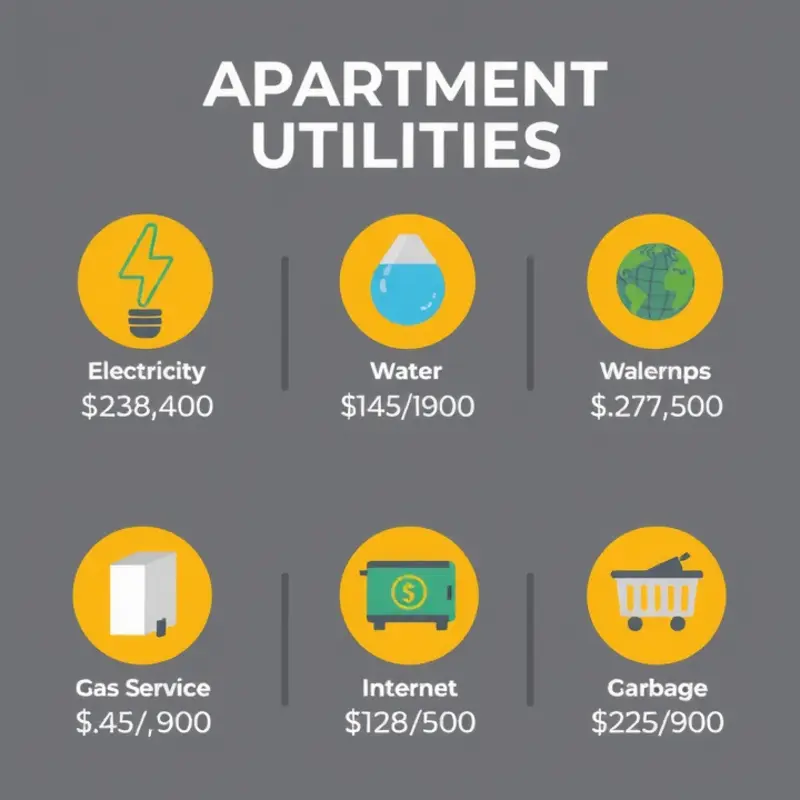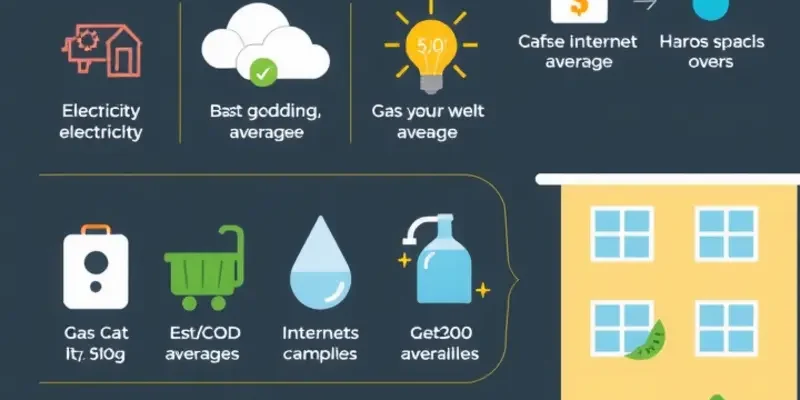Navigating the world of apartment rentals can be daunting, especially for young professionals, first-time renters, students, and families. Amid the excitement of moving into a new place, it’s crucial to understand not just rent but also the various utilities that will affect your monthly expenses. From water and electricity to internet and garbage services, accurate budgeting is essential for maintaining financial health and enjoying a stress-free living environment. This guide will walk you through the essential steps to devise a solid utility budget that accommodates your lifestyle while offering clear insights on lease agreements. With practical tips and a friendly approach, we aim to help you feel more confident in managing your finances as you embark on this new chapter in your life.
Understanding Utility Expenses

Navigating the range of utility expenses is a critical step toward mastering your apartment budget. Utilities encompass essential services that keep your living space functional and comfortable. These typically include electricity, water, gas, heating, and garbage collection. Let’s delve into what each of these services entails, how to estimate their costs, and interpret your lease agreement for hidden requirements.
Electricity powers your lights, appliances, and electronic gadgets. The cost varies significantly based on usage, location, and rate plan. A good rule of thumb for estimating your electricity bill is to contact the previous tenant or your local utility provider to get an average monthly cost. Furthermore, consider the size of your apartment and the energy efficiency of your appliances.
Water expenses usually cover both usage and sewage services. Water costs depend largely on your consumption and local rates. Many apartments include water in rent, but it’s crucial to confirm this in your lease. If you’re responsible for water bills, don’t forget to account for seasonal fluctuations in usage, such as increased consumption during summer months.
Gas is often used for heating and cooking. Not all apartments use gas, but if yours does, it typically means a separate bill. Gas expenses can fluctuate based on climate and usage patterns. Typically, colder months will bring higher bills if gas is used for heating. To better estimate your costs, inquire about past bills and explore energy-saving measures, like using programmable thermostats.
Heating and cooling may be billed separately if your apartment has a centralized HVAC system. While some buildings include these costs in rent, others meter individually. Look closely at your lease for these details. Additionally, review local regulations for heating requirements during winter months, ensuring landlords cannot overcharge.
Garbage collection is one utility that can vary greatly. Some complexes provide this service for free, while others charge a fee. It’s often a fixed monthly amount, so check what your lease states and whether there’s a recycling service included. For more tips on recycling and managing garbage efficiently, consider reading this guide on recycling tips.
Understanding what’s included in your lease agreement is crucial. Always review it thoroughly to identify which utilities are included and any potential caps on usage. This prevents unexpected charges and helps you plan better.
When outlining your monthly budget, consider setting up a utility savings buffer for months with higher usage. Such proactive planning ensures utilities don’t jeopardize your financial stability. Integrate estimated utility costs into your larger financial plan, keeping transparency with any roommates about shared expenses.
By thoroughly understanding these elements and planning accordingly, you can effectively manage your apartment’s utility expenses. This not only helps you master your budget but also ensures a smoother renting experience.
Strategies for Effective Budgeting

Managing your utility expenses can seem overwhelming at first, but with the right strategies, it’s entirely doable. The first step is to track your utility usage meticulously. This involves recording your consumption regularly and noting any patterns or anomalies. Many apartments now have smart meters that give you real-time data. If this isn’t available, manually checking your meters weekly can offer insights into your usage trends.
Setting a monthly budget for each utility helps maintain control over your expenses. Review your past bills to identify monthly costs, then set realistic targets. Consider slightly overestimating your budget to accommodate unforeseen spikes in usage. Keep an eye on external factors like seasonal changes that might influence energy consumption, and adjust your budget accordingly.
Negotiating utility bills can also reduce costs. For instance, consider discussing rates with your providers, especially if you’re a long-standing customer or if your building qualifies for special rates. In many cases, utility companies offer discounts or rebates for energy-efficient practices or appliances. Additionally, some providers might offer flexible payment plans during the colder months, which can help manage cash flow.
Harnessing technology can significantly streamline your budgeting process. Numerous apps can track utility bills and alert you if your spending exceeds your budgeted amount. They can also automate payments to avoid late fees, helping you manage finances more efficiently. Mobile alerts can prove invaluable, particularly during high-consumption months, allowing you to take corrective action early.
To create a more energy-efficient home, invest in smart thermostats and LED lighting. Not only do these technologies lower consumption, but they also often come with rebate opportunities. Encourage your household to adopt water-saving practices, like shorter showers or using energy-efficient dishwashers, which can contribute to substantial savings.
If you share your apartment with roommates, consider setting up a shared expense spreadsheet. This ensures transparency and equitability in splitting utility costs. It’s useful to include a ‘buffer fund’ for months when the bills unexpectedly surge.
For more detailed advice on managing finances, check out our financial advice for student renters to gain insights on making finances work in tight budgets. Applying these strategies can significantly ease the burden of utility expenses, leaving you with a more balanced budget and peace of mind.
Final words
Managing your apartment utility budget doesn’t have to feel overwhelming. By understanding the types of utility expenses you will encounter and implementing effective budgeting strategies, you can take charge of your finances and ensure you remain within your means. Remember, freelance or full-time, whether you’re a student, a young professional, or a family, financial clarity is achievable. As you move into your new home, keep these budgeting tips in mind for a financially sound living experience.









